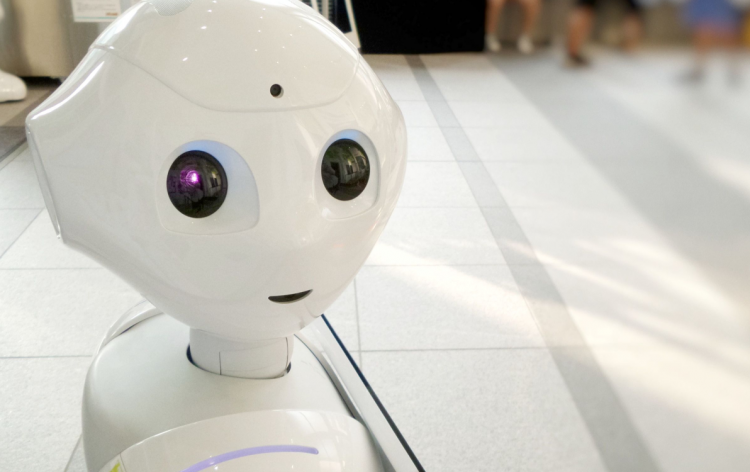The Dual Nature of AI: Opportunities and Challenges for Human Labor

In the wake of the rapid advancements in artificial intelligence (AI), our world is undergoing a profound transformation that extends far beyond technological innovation. With its potential to revolutionize industries and reshape the way we work, AI stands as a double-edged sword, both empowering and posing significant challenges to the future of human labor. As machines increasingly learn to perform tasks traditionally carried out by humans, the dynamics of employment and the nature of work are being reshaped. This article delves into the complex interplay between AI and human labor, examining the implications, opportunities, and potential risks inherent in this paradigm shift.
What Benefits Does AI Bring to Us?
Artificial Intelligence (AI) has surfaced as a game-changing phenomenon, bringing about revolutionary changes across numerous spheres of our existence and greatly streamlining the path to worldwide progress. By harnessing the power of AI, humanity has unlocked numerous benefits, enabling us to overcome complex challenges and embark on new frontiers of innovation.
AI possesses a remarkable capability to augment effectiveness and output across various sectors. Through the implementation of machine learning algorithms, systems can scrutinize extensive datasets, recognize patterns, and produce invaluable perspectives. As a result, processes have become streamlined, resource allocation has been optimized, and considerable reductions in time and expenses have been realized. An illustrative example can be found in the realm of healthcare, where AI-driven diagnostic tools exhibit remarkable precision in analyzing medical images. This advancement facilitates early disease detection and enhances treatment results.
Moreover, AI has opened new avenues for personalized experiences. Virtual assistants, powered by natural language processing, have become an integral part of our daily lives, helping us manage tasks, gather information, and streamline our routines. Intelligent recommendation systems, employed by platforms like Netflix and Amazon, utilize AI algorithms to understand individual preferences, thereby providing tailored suggestions and enhancing user satisfaction.
In the realm of transportation, AI has played a pivotal role in revolutionizing autonomous vehicles. The integration of cutting-edge sensor technologies and AI algorithms empowers vehicles to navigate roadways, interpret traffic dynamics, and swiftly make critical judgments. This has the potential to diminish accidents and elevate overall safety on the roads. Furthermore, AI-powered logistics systems optimize supply chains, enabling efficient inventory management and seamless delivery processes.
AI has also catalyzed breakthroughs in scientific research and development. Machine learning models can analyze vast datasets, identifying trends and patterns that would be otherwise overlooked. This has accelerated advancements in fields such as drug discovery, climate modeling, and materials science, unlocking new possibilities and propelling scientific progress.
In summary, from healthcare to transportation and scientific research, AI-driven innovations have simplified complex tasks, provided personalized experiences, and pushed the boundaries of human potential. As AI continues to evolve, its benefits are poised to create an even more interconnected and efficient world, fostering unprecedented growth and development.
AI – Uncontrolling Danger for Us
Despite the numerous benefits AI offers, concerns have arisen regarding its potential risks and impact on human labor. The integration of AI technologies into various industries has led to the displacement of certain job roles, posing challenges for workers and necessitating adaptations in the labor market.
Several professions are particularly vulnerable to the pressures of AI. Routine and repetitive tasks that can be automated are at a higher risk. For instance, jobs in manufacturing, such as assembly line work, have increasingly been taken over by robotic systems. Similarly, administrative tasks like data entry and basic customer support have been automated through AI-powered chatbots and virtual assistants. Additionally, sectors heavily reliant on data analysis, such as finance and market research, have witnessed the rise of AI algorithms capable of processing and interpreting large volumes of data with speed and accuracy, potentially reducing the need for human analysts.
The harm caused by AI in the context of human labor is multifaceted. Firstly, there is the risk of job displacement, where AI-powered systems and robots replace human workers altogether. This can lead to unemployment and financial instability for individuals whose skills and expertise become redundant in the face of automation. Moreover, the rapid pace of technological advancement often outpaces the reskilling and upskilling efforts required for workers to adapt to new roles, exacerbating the challenges faced by those displaced by AI.
Furthermore, the use of AI in certain sectors can lead to issues such as algorithmic bias and ethical concerns. For example, in the recruitment process, AI-based algorithms used for resume screening or candidate evaluation may inadvertently perpetuate biases present in the data used to train them, potentially leading to discriminatory outcomes and limiting opportunities for certain individuals.
There are also potential socio-economic implications. The concentration of AI-driven technologies and resources in the hands of a few dominant players could exacerbate inequalities, creating a disparity between those who have access to AI-driven opportunities and those who do not. The loss of jobs and economic shifts caused by AI can also impact local communities and industries, leading to societal challenges and economic imbalances.
In conclusion, while AI brings numerous benefits, it is important to acknowledge the risks it poses to human labor. Automation threatens certain job roles, potentially leading to job displacement, unemployment, and skills gaps. The potential for algorithmic bias and ethical concerns further compound the risks. To address these challenges, proactive measures such as reskilling programs, policies promoting equitable access to AI-driven opportunities, and robust ethical frameworks are essential for harnessing the potential of AI while ensuring a sustainable and inclusive future for the workforce.


























Comments (0 comment(s))